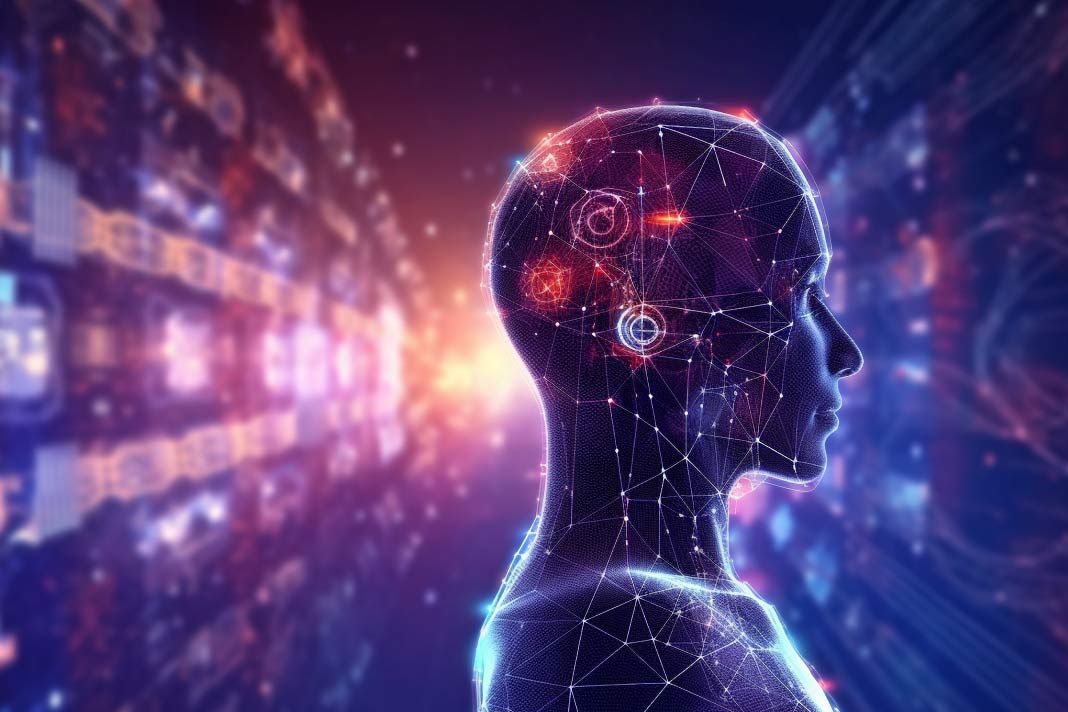With artificial intelligence, focus on enforcing competition laws is vital and goes hand in hand with preserving democracy, industry experts said at a panel discussion in the European Parliament on Monday (19 February).
In 2023, the German competition authority (Bundeskartellamt) looked at the artificial intelligence industry, especially the Microsoft OpenAI partnership. In January, the European Commission decided to look into competition in virtual worlds and generative AI and opened calls for contribution.
The French competition authority (Autorité de la Concurrence) also looked into the sector’s competitive practices in February.
“We [should] rename competition authorities or add a democracy competition competency in their names because this is what it is all about. Competition is also democracy protection,” Tobias Haar, member of the general counsel of generative AI startup Aleph Alpha, said on Monday.
Barry Lynn, executive director at the non-profit organization Open Markets Institute, warned that AI amplifies existing digital downsides.
He believes the EU should change its competition lenses “to focus on harms to democracy and human liberty”. From this perspective, one could “see that behavior regulation of these corporations is most important”.
Of paramount importance is to limit Big Tech’s “ability to engage in manipulative, distortive, discriminatory behavior,” Lynn said.
Andreas Mundt, president of the German competition authority, said that, when it comes to artificial intelligence, one “cannot overestimate the risks for competition, for society, and for democracy in general”.
His French counterpart, Benoît Cœuré, pointed out that the EU got it right with AI, as the Parliament and the Council “started thinking about the risks,” an approach taken within the EU AI Act.
“It’s more important than competition, in a way,” acknowledged Cœuré.
Still, the French competition authority president shared his concerns that it took years for competent authorities to apply the EU data protection law (GDPR), and he was therefore worried about how much time national authorities will require to enforce the AI Act.
Regarding AI as a fast-evolving technology, the EU Competition Commissioner Margrethe Vestager said: “Is the AI revolution going to follow the same history as web 2.0? I have very serious doubts”.
Contrary to the 2000s, when entrepreneurs were “exploring uncharted territories,” the current technological change is “not happening in a vacuum”, she explained.
Indeed, AI model development depends on data, cloud capacities, chips, and specific skills already controlled by a handful of tech companies, which Vestager concluded creates “huge barriers to entry” for AI startups.
Carel Maske, director of competition at Microsoft, suggested that the AI industry was not that concentrated.
In his view, the AI value chain contains five layers where different actors compete. Land and financial resources, infrastructure (data centers and the cloud), AI models, AI systems, and distribution channel layers.
Maske mentioned “Microsoft partnering with OpenAI” – which the European Commission has said it would look into – saying that “there is no exclusivity in Microsoft using that technology”.
Yet, Germany’s Mundt argued that although Microsoft’s relationship with OpenAI was a “soft cooperation,” there is still an influence by Office’s parent company on the world-renowned ChatGPT creator company.
Mundt announced that his organization would support the European Commission in evaluating the competition in AI.
“I can promise you, we will look at all these corporations very carefully, and if it only gets close to a merger, we’ll try to get in,” he stated.
Maske said the Microsoft-OpenAI partnership is “not something under the radar” of competition laws. Still, Lynn of the Open Markets Institute was not reassured, pointing to how Big Tech companies do business.
He suggested a need for “bold solutions” – to separate AI startups and Big Tech partnerships, impose a ban on price and information delivery manipulation, break cloud industry monopolies, and take away personal data ownership from Big Tech.
Mundt said the EU’s hope against Big Tech lies in small and medium-sized companies, which own very high-quality specialized data, which “can be used to build specialized AI models [that] could outperform foundation models in their respective domains”.
“In a nutshell, Big [Tech] AI tries to do everything well [while] small and specialist AI could maybe do one thing extremely well. This is Europe’s big chance,” concluded Mundt.



